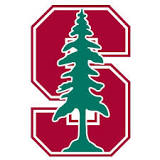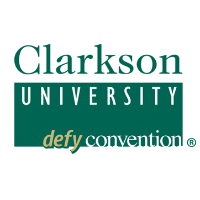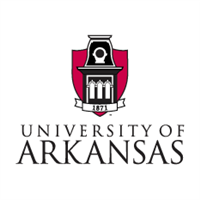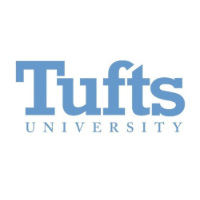What do they do?
Apply engineering theory and principles to problems of industrial layout or manufacturing production, usually under the direction of engineering staff. May perform time and motion studies on worker operations in a variety of industries for purposes such as establishing standard production rates or improving efficiency.
Also known as:
Business Process Analyst, Engineering Technician, Industrial Engineering Analyst, Industrial Engineering Technician, Manufacturing Coordinator, Manufacturing Technology Analyst, Quality Control Engineering Technician (QC Engineering Technician), Quality Management Coordinator, Quality Technician, Service Technician
-
4.4%
Change
Ranks #41 in job growth rate310Job Openings
Ranks #7 in net job growth
-
Stanford University
Stanford, CA
-
Clarkson University
Potsdam, NY
-
-
University of Arkansas
Fayetteville, AR
-
Duke University
Durham, NC
Looking for colleges that offer a specific major? Use the College Match Tool to find your best-matched schools and discover your estimated Net Price!
- Doctorate or Professional Degree (1%)
- Master's degree (3%)
- Bachelor's degree (18%)
- Associate's degree (20%)
- Some college, no degree (30%)
- High school diploma equivalent (24%)
- Less than high school diploma (4%)
Most Popular Majors that prepare Industrial Engineering Technologists and Technicians
-
#1
-
Degrees Granted
5,852
-
Female Students
1,758
-
Male Students
4,094
-
Median Starting Salary
$51,600
-
-
#2
-
Degrees Granted
3,100
-
Female Students
483
-
Male Students
2,617
-
Median Starting Salary
$56,989
-
-
#3
-
Degrees Granted
2,701
-
Female Students
305
-
Male Students
2,396
-
Median Starting Salary
$56,989
-
-
#4
-
Degrees Granted
1,346
-
Female Students
280
-
Male Students
1,066
-
Median Starting Salary
$56,989
-
-
#5
-
Degrees Granted
374
-
Female Students
153
-
Male Students
221
-
Median Starting Salary
$61,100
-
People in this career often have these skills:
- Reading Comprehension - Understanding written sentences and paragraphs in work-related documents.
- Active Listening - Giving full attention to what other people are saying, taking time to understand the points being made, asking questions as appropriate, and not interrupting at inappropriate times.
- Critical Thinking - Using logic and reasoning to identify the strengths and weaknesses of alternative solutions, conclusions, or approaches to problems.
- Complex Problem Solving - Identifying complex problems and reviewing related information to develop and evaluate options and implement solutions.
- Monitoring - Monitoring/Assessing performance of yourself, other individuals, or organizations to make improvements or take corrective action.
People in this career often know a lot about:
- Mechanical - Knowledge of machines and tools, including their designs, uses, repair, and maintenance.
- Engineering and Technology - Knowledge of the practical application of engineering science and technology. This includes applying principles, techniques, procedures, and equipment to the design and production of various goods and services.
- Production and Processing - Knowledge of raw materials, production processes, quality control, costs, and other techniques for maximizing the effective manufacture and distribution of goods.
- Mathematics - Knowledge of arithmetic, algebra, geometry, calculus, statistics, and their applications.
- Design - Knowledge of design techniques, tools, and principles involved in production of precision technical plans, blueprints, drawings, and models.
- English Language - Knowledge of the structure and content of the English language including the meaning and spelling of words, rules of composition, and grammar.
- Computers and Electronics - Knowledge of circuit boards, processors, chips, electronic equipment, and computer hardware and software, including applications and programming.
- Physics - Knowledge and prediction of physical principles, laws, their interrelationships, and applications to understanding fluid, material, and atmospheric dynamics, and mechanical, electrical, atomic and sub-atomic structures and processes.
People in this career often have talent in:
- Oral Comprehension - The ability to listen to and understand information and ideas presented through spoken words and sentences.
- Problem Sensitivity - The ability to tell when something is wrong or is likely to go wrong. It does not involve solving the problem, only recognizing that there is a problem.
- Deductive Reasoning - The ability to apply general rules to specific problems to produce answers that make sense.
- Inductive Reasoning - The ability to combine pieces of information to form general rules or conclusions (includes finding a relationship among seemingly unrelated events).
- Written Comprehension - The ability to read and understand information and ideas presented in writing.
- Near Vision - The ability to see details at close range (within a few feet of the observer).
- Oral Expression - The ability to communicate information and ideas in speaking so others will understand.
- Information Ordering - The ability to arrange things or actions in a certain order or pattern according to a specific rule or set of rules (e.g., patterns of numbers, letters, words, pictures, mathematical operations).
- Category Flexibility - The ability to generate or use different sets of rules for combining or grouping things in different ways.
People in this career often do these activities:
- Test products for functionality or quality.
- Assess product or process usefulness.
- Research human performance or health factors related to engineering or design activities.
- Monitor processes for compliance with standards.
- Inspect operational processes.
- Prepare detailed work plans.
This page includes data from:

 Occupation statistics: USDOL U.S. Bureau of Labor Statistics Occupational Employment Statistics
Occupation statistics: USDOL U.S. Bureau of Labor Statistics Occupational Employment Statistics









